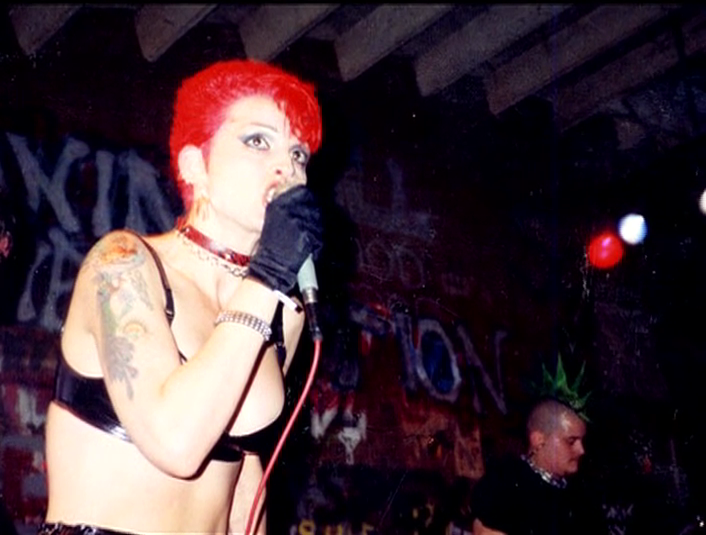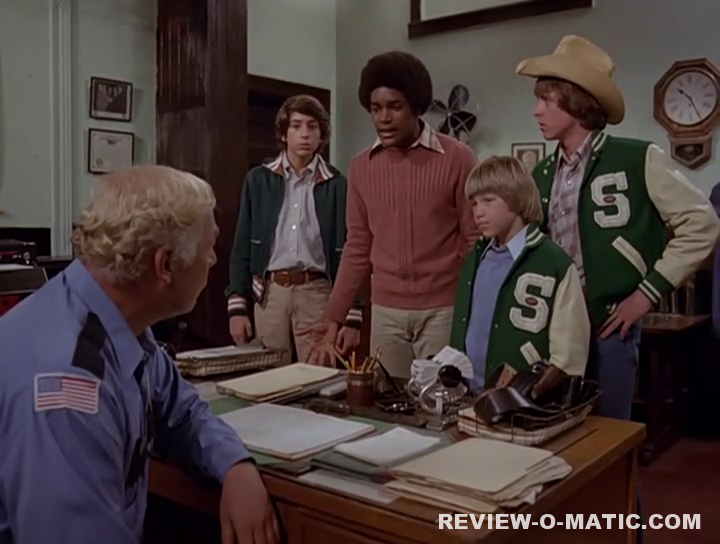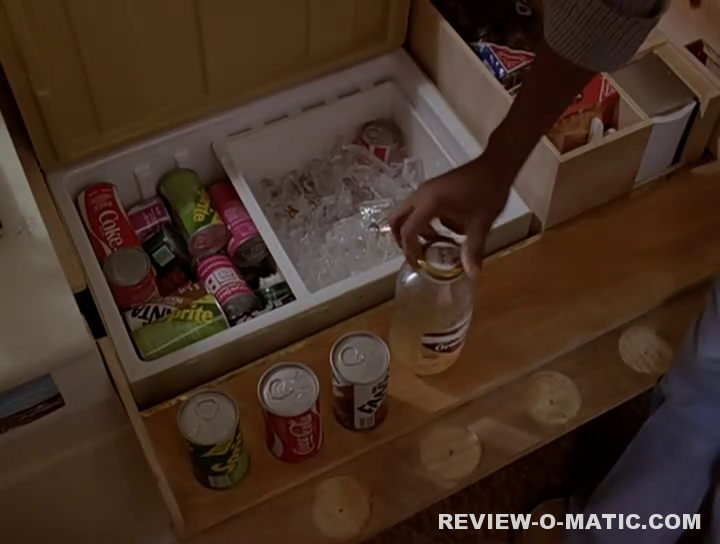Last Fast Ride: The Life, Love and Death of a Punk Goddess (2011)
Friday, March 2nd, 2018
If (like me) you grew up on MTV, you’re probably familiar with VH1’s Behind the Music. Each episode of the show focused on a single band or musician and followed a fairly consistent cookie-cutter pattern. Each show covered the artist’s childhood, their early days as a performer, their big break, their personal demons, and where they are today (dead or alive). But one other thing every episode of Behind the Music had in common was that they all featured musicians people had heard of.
That hurdle for Last Fast Ride: The Life, Love and Death of a Punk Goddess is a steep one to overcome. No one, except those well-steeped in obscure 90s punk rock, will know who Marian Anderson was. (I sure didn’t.) Turns out, she was the lead singer of a California-based punk band known as the Insaints, who put out a single 7″ split (album) in 1993. Even if you wre into punk rock and had been living in the area at the time, there’s a good chance you could have blinked and missed them.
Marian’s story is not a happy one. The oldest of several girls, she was physically and sexually abused by her father as a young child. She abused drugs and alcohol, was diagnosed with multiple mental illnesses, attempted suicide “at least twenty times,” gave her daughter up for adoption, and worked as a dominatrix in the sex industry. In addition to all of those things, she also founded and performed in several punk rock bands, the biggest of which was the aforementioned Insaints.
The Insaints weren’t known for being particularly good as much as they were known for having a lead singer (Anderson) who would perform without a top on. And later, without a bottom on either. Anderson began inviting fellow sex artists on stage to perform during Insaints shows, often resulting in a literal orgy as the band was forced to play on and pretend everyone was there for the music. Anderson’s claim to fame, if she has one, was that she was arrested in 1993 and charged with three counts of lewd and lascivious behavior, one of which involved a banana. Anderson fought the charges in court claiming freedom of speech and artistic expression. After a year, she was acquitted of all charges. Shortly after that, the band broke up.
Last Fast Ride is narrated by Henry Rollins (which immediately gives it street cred) and contains interviews with established band members from The Offspring and Rancid, but some of the interviews add up to little more than “yup, we knew her.” A few of Anderson’s old band mates also testify that she was a brilliant person with a gentle soul, but as for us, the audience, we’re mostly treated to videos of her screaming incoherently on stage.
Other than Anderson’s sister, the most featured interview subject is her ex-girlfriend, Danielle Santos Bernal. Bernal and Anderson shared a love/hate relationship in which they made out a lot and then tried to stab each other with knives a lot. If you thought Anderson was going to settle down and become a boring housewife, you missed the part about the banana.
Anderson died of a heroin overdose in 2001 at the age of 33. Six months later, her father killed himself. It’s a depressing but somehow fitting ending to a depressing story.
Just before the closing credits roll, as a guy with a giant mohawk, leather jacket, eye liner and acoustic guitar plays a sappy song, I asked myself why I sat through this documentary. The filmmakers did a fantastic jpb of making Anderson’s life seem tragic, but not much in the way of making us care about her. With no way to make her relatable to the audience, the whole thing becomes, “we knew this chick back in the day; here’s her sad story.” There were lots of hints of things the filmmakers could have pursued — her work in the sex industry, her drug abuse, her mental illness — but none of those get much screen time. Instead, the best we get is “she stuck a banana up her hoo-hah on stage in the name of the First Amendment.” It’s a lot like defending Nazis or funeral protesters; even if they have the right to say what they want, it still doesn’t make them likable people.
If you’re looking for a depressing story about a troubled woman, Last Fast Ride is for you. If nothing else, it’ll make you want to go to the nearest coffee house and hug the smelliest person in the place.

